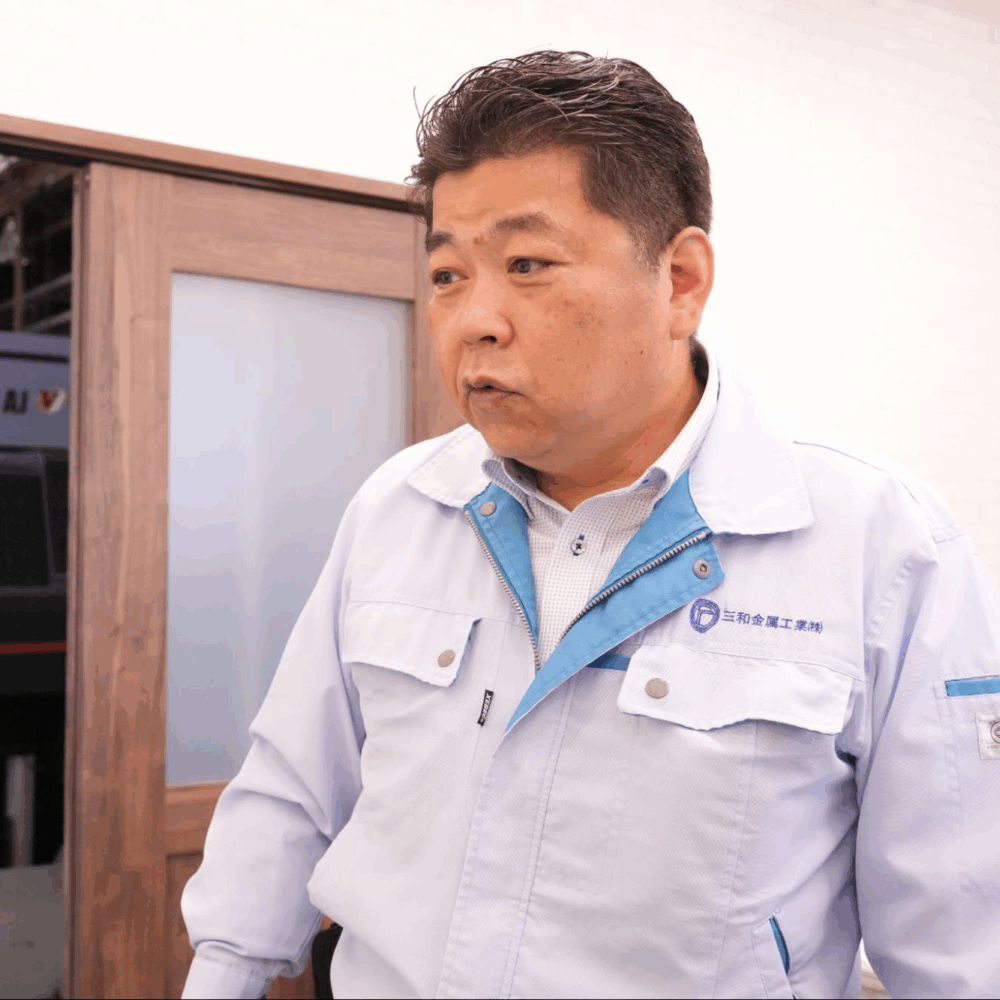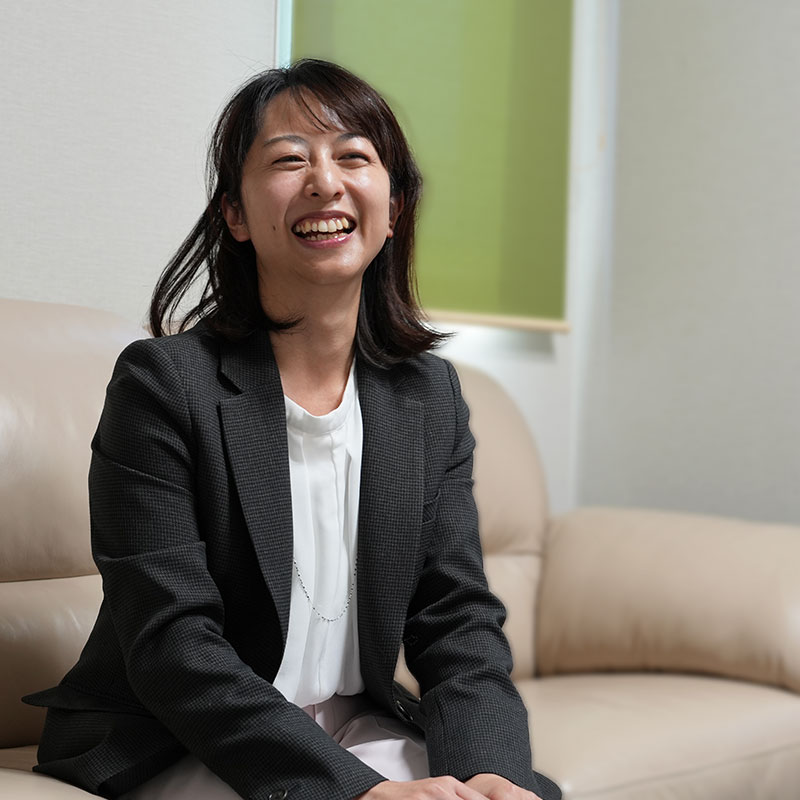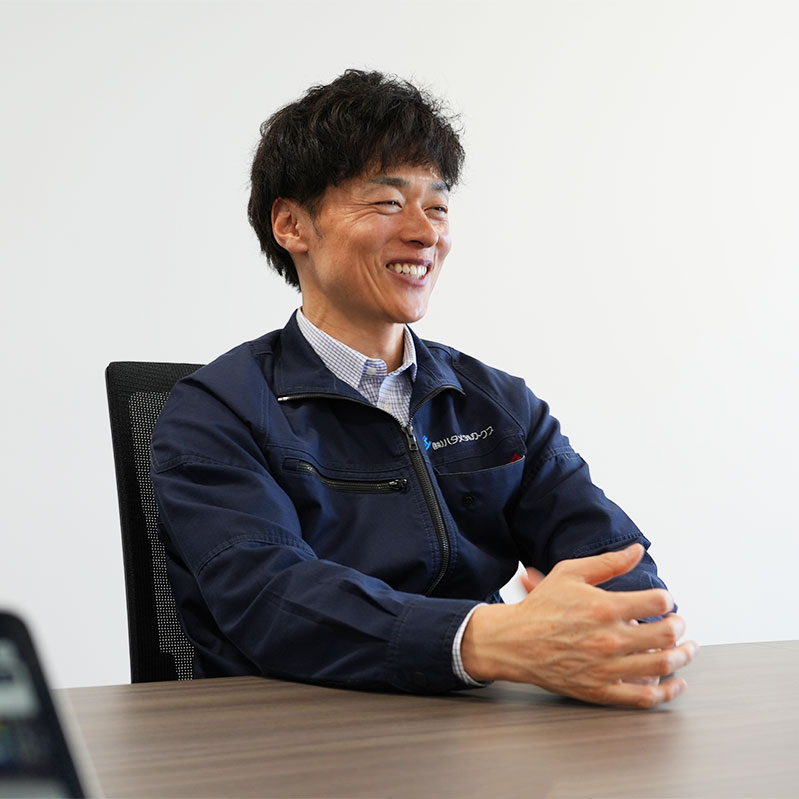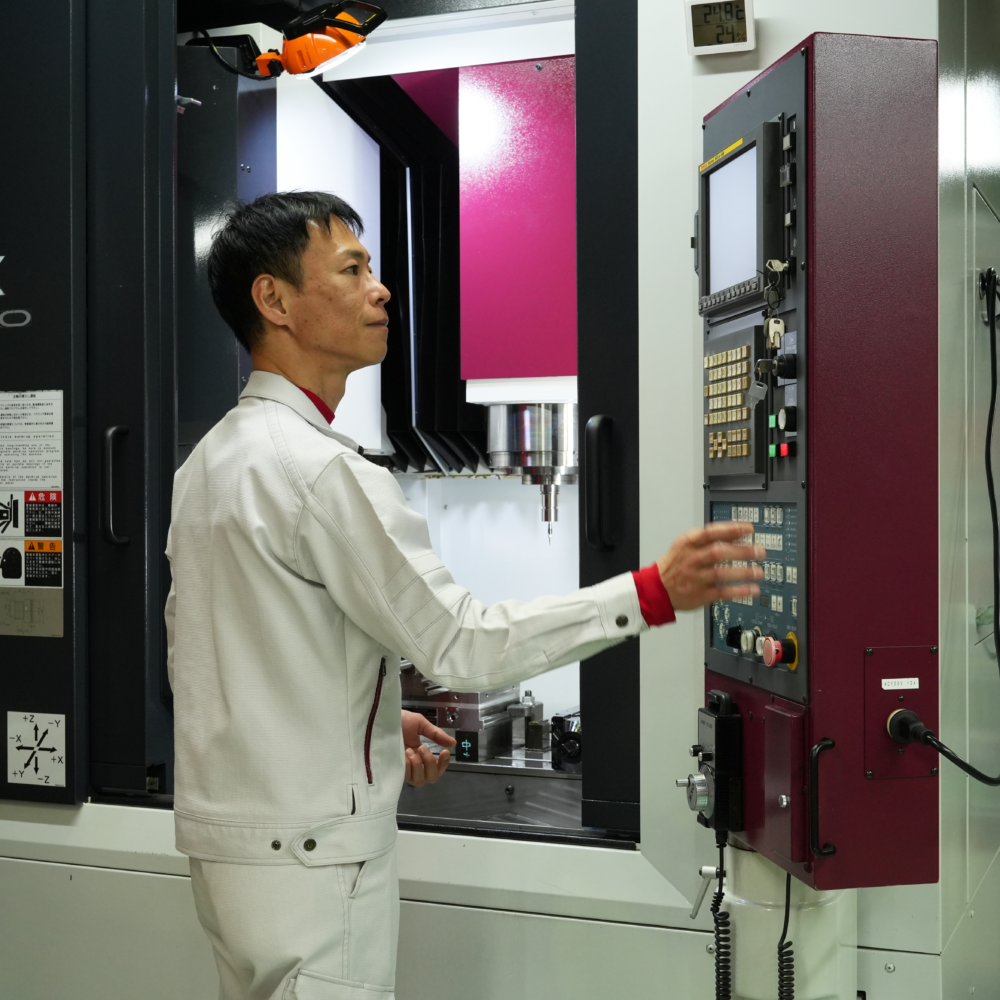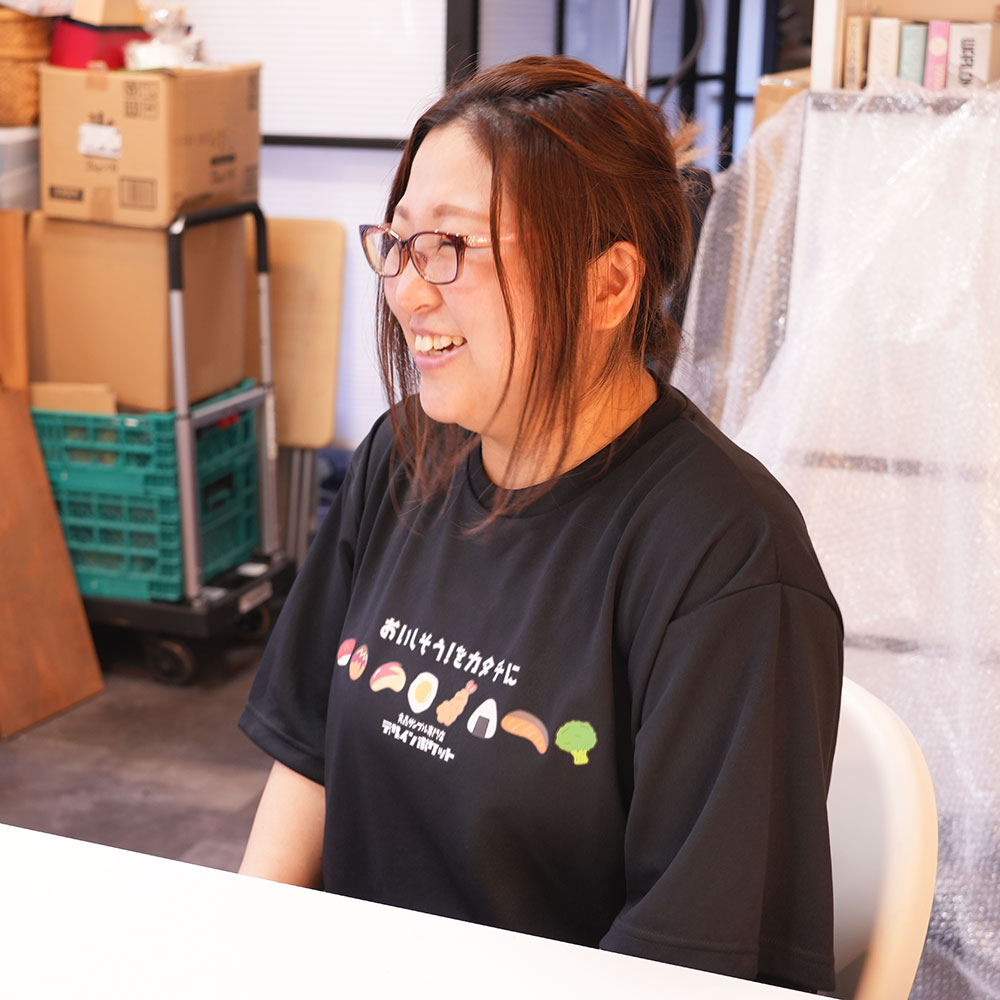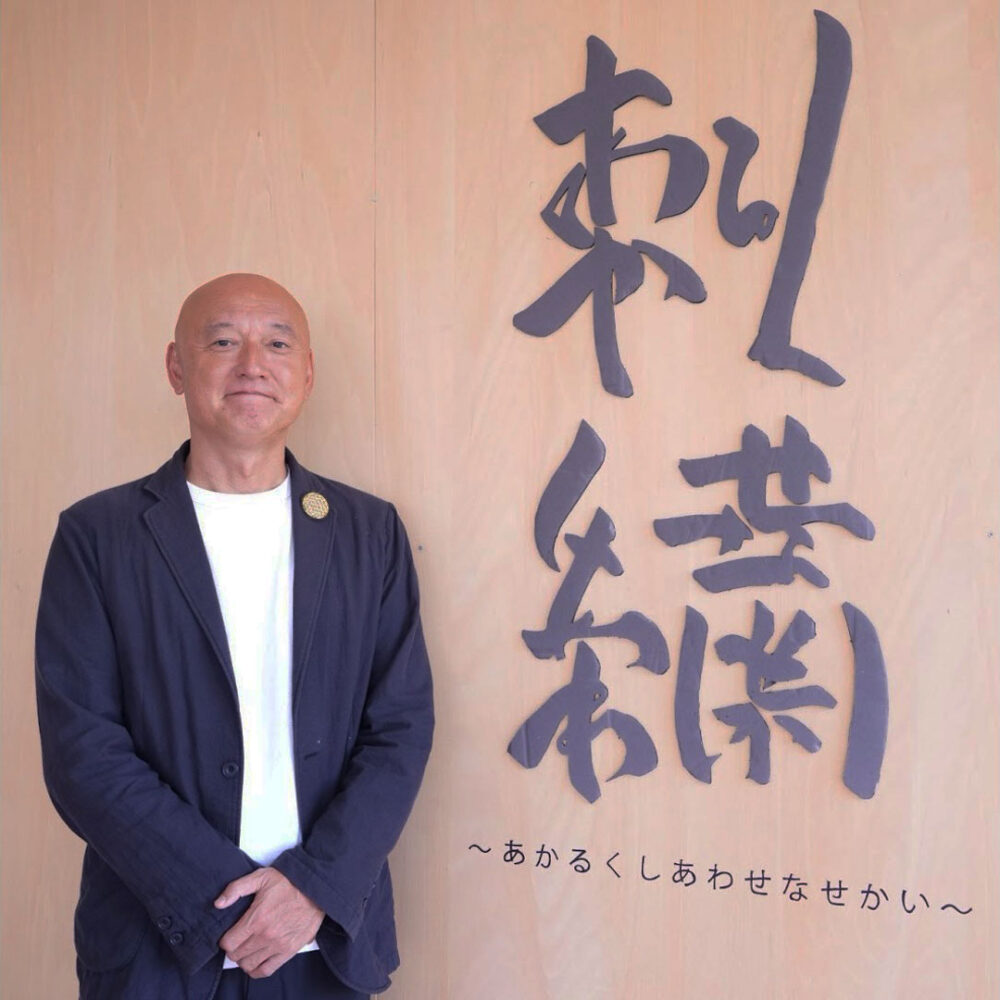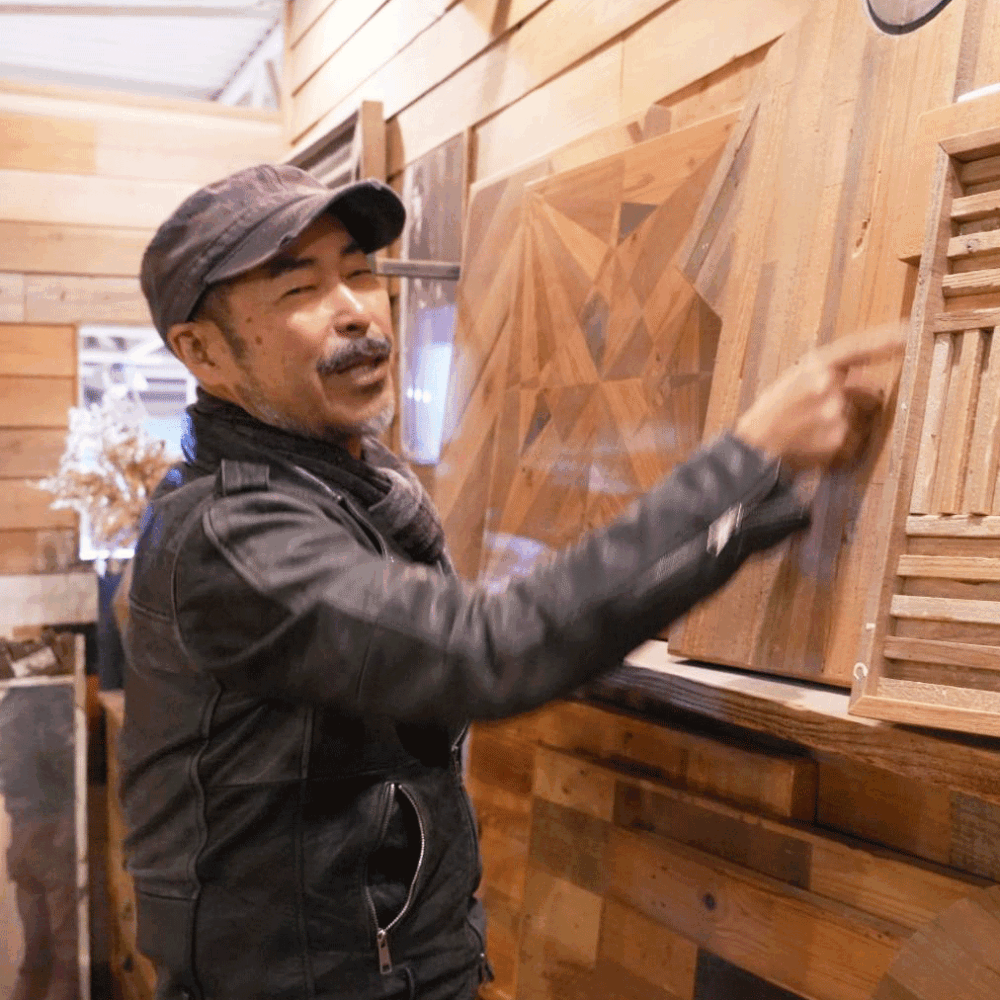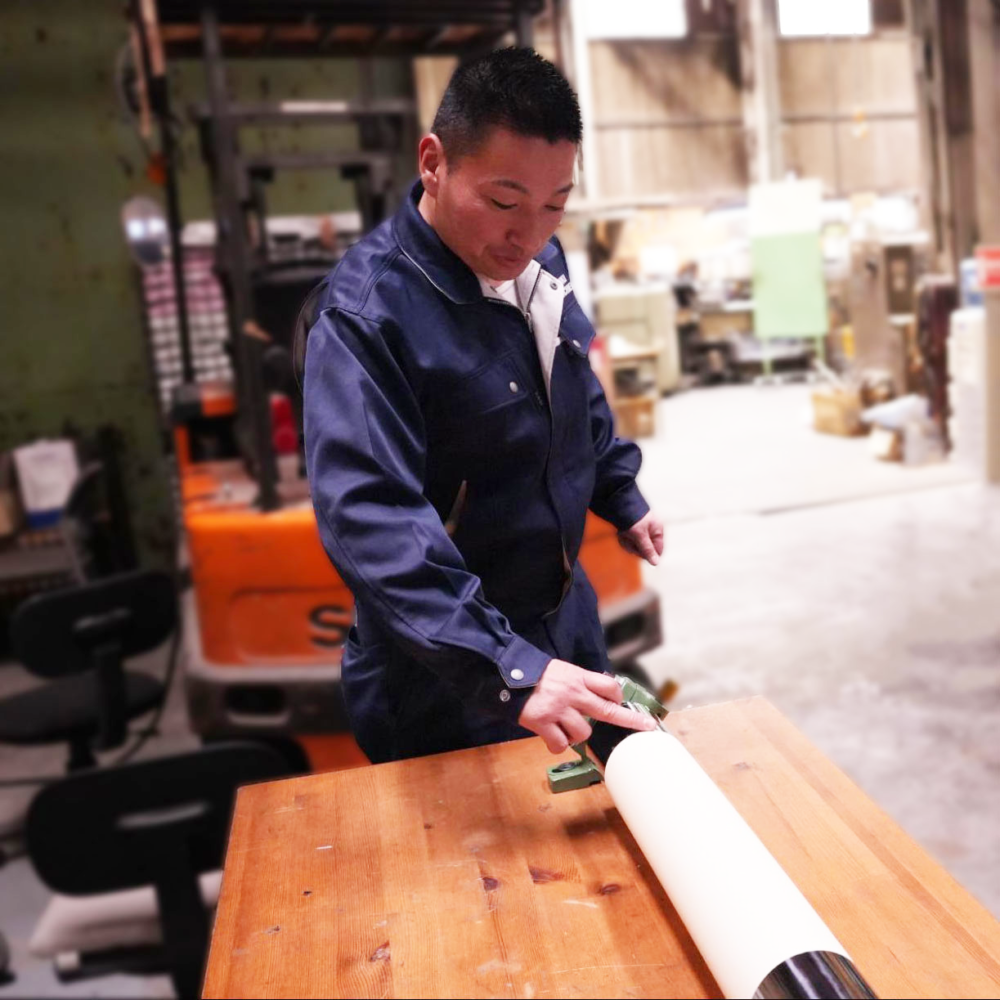Craftsmanship Fueled by Technology and Human Connections: Serendipitous Encounters That Shape the Future
- Metal mining
- Connecting with People
- Creative
Osaka
Since our founding, we have specialized in machining centers, focusing on the precision machining of parts for semiconductor equipment and machine tools. Guided by our motto—"Fair pricing, strict adherence to delivery deadlines, and customer satisfaction above all"—we constantly strive to improve our technical capabilities. We are also committed to passing our skills on to the next generation.

PROTAGONIST
Hiroshi MoriokaPresident and CEO
Specialized technological expertise in metal processing
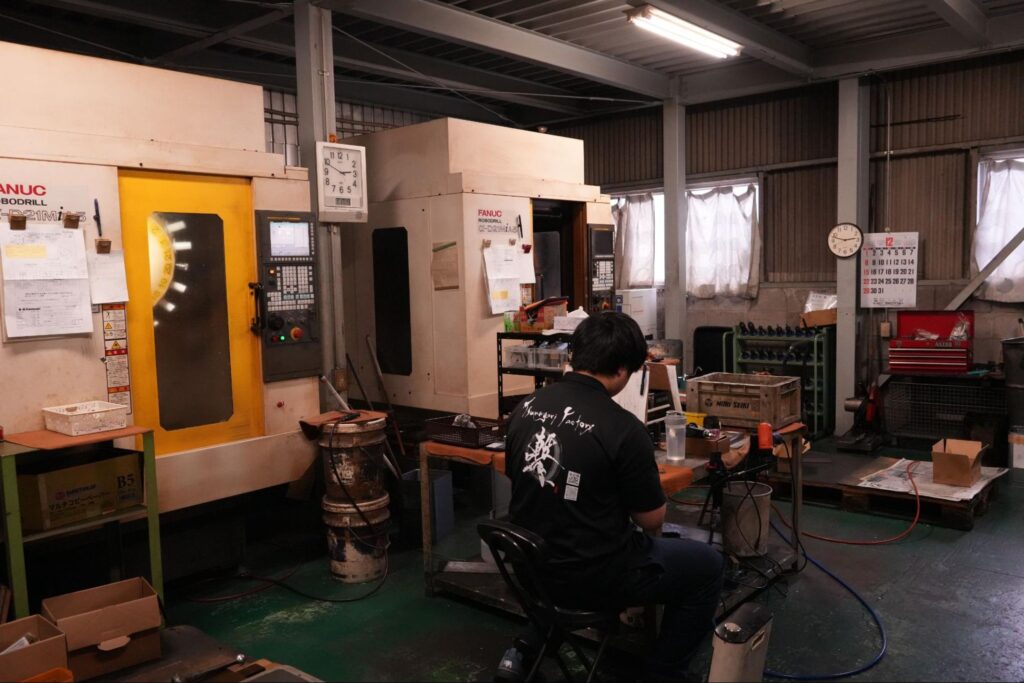
FMC primarily engages in metal component machining, with a particular strength in precision parts processing. The products it handles are mainly used in fields that demand high accuracy, such as semiconductor equipment and machine tool components. Duralumin-based aluminum alloys are especially prone to distortion and warping during machining, which requires meticulous attention throughout the manufacturing process. At FMC, the company pursues precision by carefully repeating both rough and finishing processes.
“When machining six surfaces, standard aluminum may only require six steps. But in the case of duralumin—a type of aluminum alloy—it can take more than twelve steps. And if the desired precision still isn’t achieved, we may need to add further finishing. To meet strict requirements like flatness under 0.05 millimeters, it takes a tremendous amount of effort. That’s why many companies tend to avoid this kind of work. But we take it on. Our strength lies in our commitment to three key values: high precision, fair pricing, and strict adherence to delivery schedules.”
In the past decade, customer demands for precision in semiconductor equipment parts have grown even stricter. Orders come in on an as-needed basis, making it difficult to forecast even three months ahead—let alone six. FMC responds to each order flexibly, producing as few as a single unit to as many as 50–100 units per batch, depending on machine availability.
With the technological expertise to handle labor-intensive and highly precise machining, FMC has earned strong trust from clients as “a company capable of handling even the most difficult duralumin machining.”
The First Encounter with Metalworking

Hiroshi Morioka had always loved making things since he was a child. His entry into the metalworking industry came at the age of 23. It all started when he took a part-time job at a machining workshop during his student years. At a local factory in Amagasaki, he learned how to operate a machining center and acquired his first skills in metal processing. He eventually joined the factory full-time and worked there for about four years.
“I’ve been in this industry for over 30 years since then. The person who taught me how to operate the machines at that part-time job was actually the founder of our company—and my mentor. At the time, I had no knowledge whatsoever about metal processing, but I gradually picked up the skills while being trained on-site.”
Four years later, Morioka moved to a factory in Higashi-Osaka. The company president had heard about his ability to operate machining centers and reached out to him. They were searching for a skilled craftsman to help launch a new in-house factory, and Morioka’s name came up as a candidate.
“I never imagined I’d be scouted, especially with so little experience at the time. But I saw it as a chance and decided to take on the challenge. I ended up serving as factory manager in Higashi-Osaka for about nine years, supporting the production floor and honing my craft.”

At the time, Morioka had a dream of one day running his own business. However, due to financial constraints and lack of preparation, he felt unable to take the leap.
It was during this period that his mentor left the factory in Amagasaki and established a new workshop, which would later become the foundation of what is now FMC. Since the new company was also based in Osaka, their connection was rekindled, and Morioka decided to return to his mentor’s side. “I thought, ‘This is an opportunity to learn again from the person who first guided me.’”
When his mentor turned 65 and stepped into the role of chairman, the newly appointed successor president resigned just two years later. At that point, the baton was passed to Morioka, who was chosen to take over as president.
“I was in my 40s then, and I was truly surprised. I have four children, so I really struggled with the decision. But I had always dreamed of starting something of my own someday. When I talked it over with my wife, she said, ‘If it’s what you want to do, go for it.’ That gave me the push I needed… and so I made up my mind to accept the position.”
After becoming president, Morioka poured his energy into steering the company while drawing on his extensive experience on the production floor.
The Birth of “Tsunagari Factory”

In 2023, Hiroshi Morioka was inspired by fellow manufacturers he met at a networking event. Motivated by that experience, he launched a new in-house brand called “Tsunagari Factory” in 2024 as a fresh challenge. The name embodies the belief that “connections with people are essential in everything. We want to cherish every bond and relationship we are given.” Following the launch, true to its name, the brand led to many new and meaningful connections.
The brand’s first products were chopstick rests and glass pen stands. The initial focus was on mass-producing aluminum chopstick rests enhanced with color anodizing to add extra value. Around the same time, Morioka’s wife expressed a desire to try using a glass pen. When they purchased one, they realized there was no stand available to hold it upright. This sparked an idea. Morioka crafted a prototype using scrap materials from the factory, which became the next product: the glass pen stand.
Thinking it would look even better with anodizing, he reached out to a metal finishing company he had previously connected with through a networking event. It turned out to be the same company that had anodized a single-stem vase that had once inspired Morioka.
“To my surprise, it was the same company that had anodized that vase I had admired. At that moment, I knew—this was the right place.”
The resulting glass pen stand eventually led to a collaboration with the calligrapher Suiran, who created the packaging design for “Tsunagari Factory.”
“A kushikatsu restaurant we’re close with—Shinseikai 94 Dining Makoto—celebrated its 10th anniversary in 2019. While thinking about what to give as a commemorative gift, we remembered the owner had a connection to one of the members of the music group Shōnan no Kaze. Since we’re fans too, we thought, ‘Why not ask Suiran to create a calligraphy piece as a gift?’ So we traveled all the way to Hiroshima to ask her directly, and she graciously accepted.”
Five years later, in April 2024, an exhibition was held at the Umeda Hankyu Department Store featuring a collaboration between a member of Shōnan no Kaze and Suiran, showcasing photos and calligraphy. Morioka visited the venue to express his gratitude from five years prior. He brought a letter along with a gift, which Suiran read—and that’s how she discovered the glass pen stand and reached out to him.
Suiran’s message was a request: “Could you create a vessel to hold ink for my calligraphy performances?” At that time, Morioka was just about to decide on a brand name for his new initiative, and through this renewed connection, he asked Suiran to create the calligraphic logo for “Tsunagari Factory.” As a result, both an alphabet version and a kanji version of the logo were born.
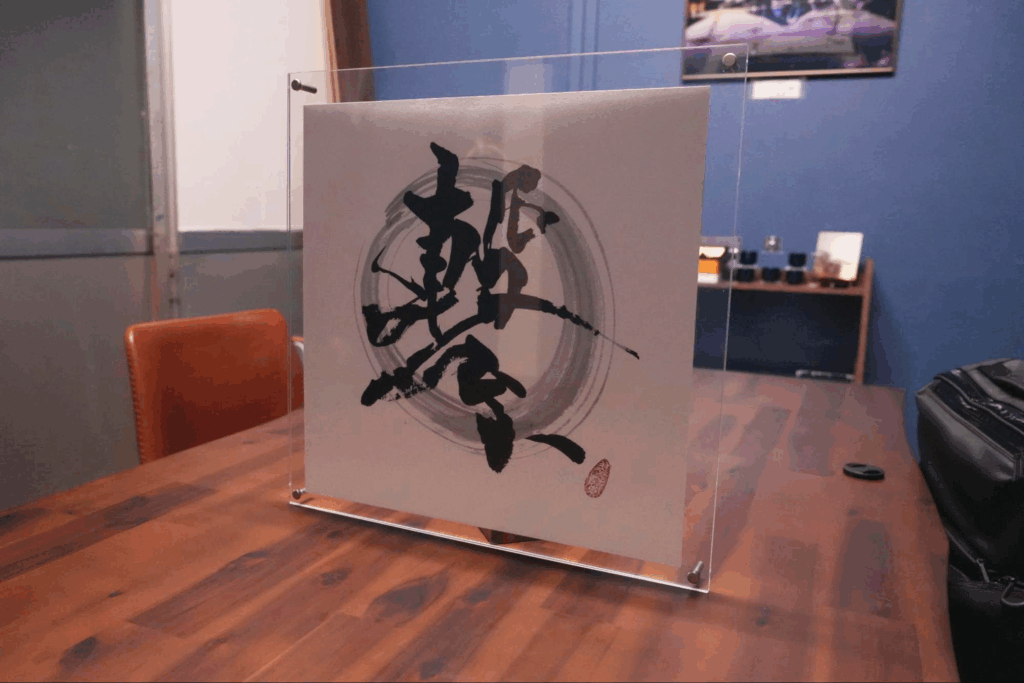
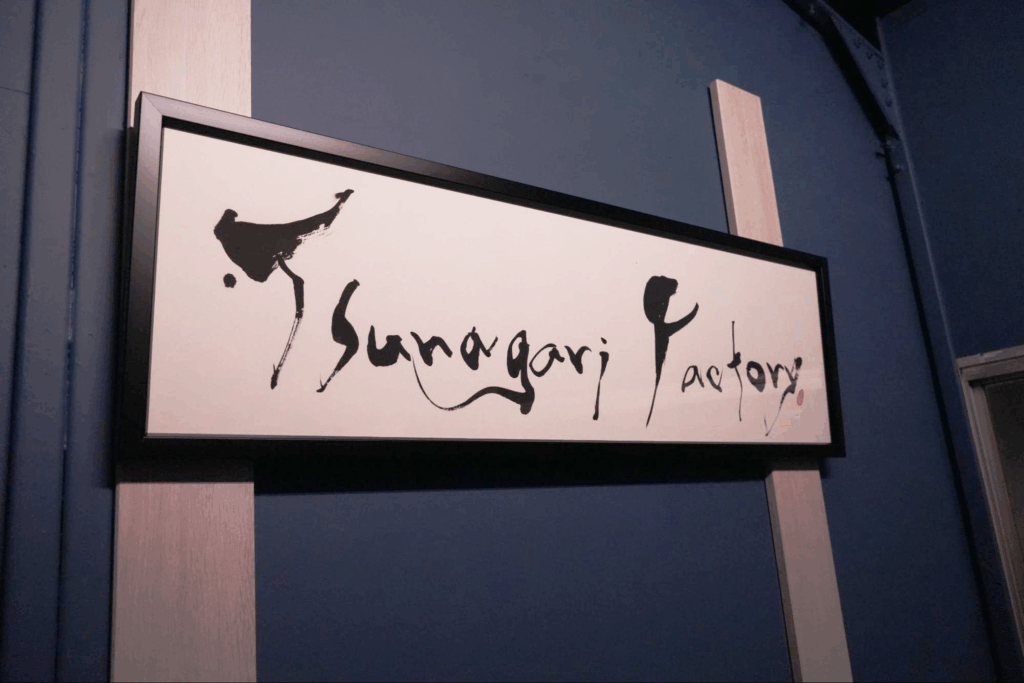
They then proceeded to have the chopstick rests anodized, turning them into official products. Later, the anodizing company proposed a new idea: “Could you create something like a drinking glass?”
“When I first heard that, I thought it would be difficult to make a full-sized glass with our equipment. But then I considered something smaller—like a sake cup—and took the idea back to the factory. We tried prototyping it, and it actually took shape and became a product. The sake cup was born from the anodizing company’s idea. It’s something we could never have created on our own. No matter what we make, I always hope that everyone involved in the process feels, ‘I’m really glad we made this,’ and that we all have fun bringing it to life together.”
The finished aluminum sake cup found its first retail home through a connection with a liquor shop located in the commercial facility “Viera Nara,” near Nara Station. And as of February 2024, it is also featured on JAL’s mileage shopping website.
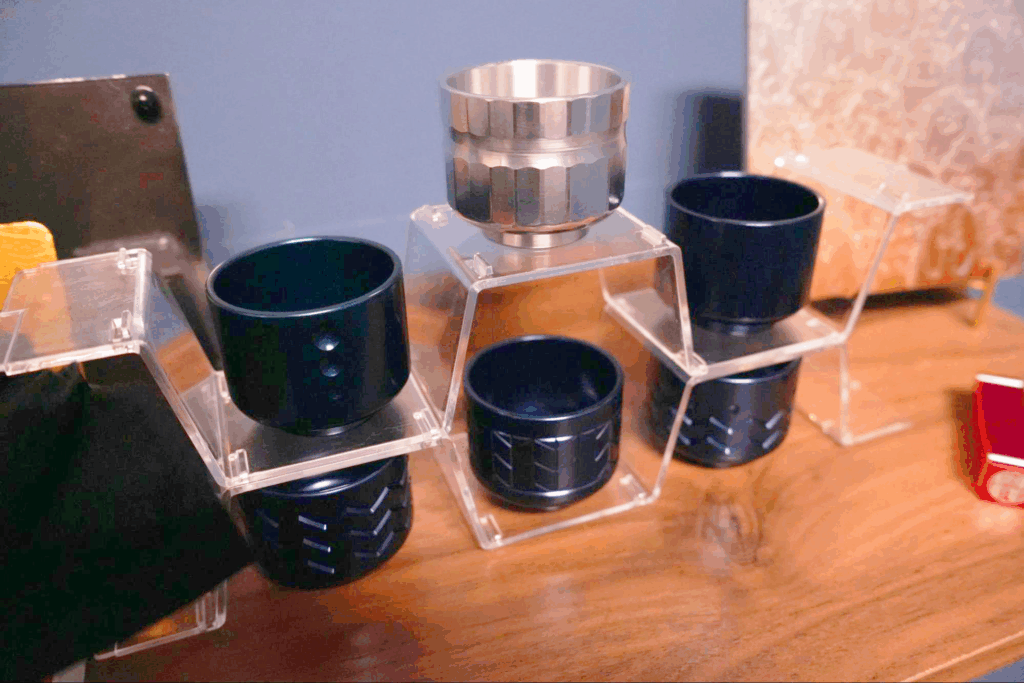
“This initiative began from a desire to create products whose pricing we could control ourselves, especially amid the COVID-19 pandemic and intensifying price competition. I believe that only by taking action does a path open up. Both successes and failures lead to future challenges. And each challenge is supported by the many connections we’ve made along the way.”
Starting with chopstick rests and sake cups, FMC continues to experiment and refine ideas for the next product.
On February 25, 2025, the company announced an aluminum record stabilizer.
A Dual Focus on B2B and B2C

FMC’s goal is not only the growth of its own business, but also to elevate the overall value of the manufacturing industry. Today’s manufacturing sector is often caught in fierce price competition, where the true worth of technologies and products is not properly recognized.
“Osaka’s manufacturing industry possesses remarkable technical skills, yet those capabilities are not receiving the recognition they deserve. I want to help restore and reaffirm the value of manufacturing—and create a society where fair pricing becomes the norm. Nothing begins by just thinking about it. Without action, there is neither failure nor success. The launch of our in-house brand, Tsunagari Factory, also took shape because we decided to act. In the beginning, we were navigating in the dark, but through our actions, we received advice from many people and were able to form connections with partners who shared our vision.”
FMC has traditionally focused on B2B operations, but is now actively expanding into the B2C field as a second core pillar. The company currently develops and sells aluminum products such as chopstick rests and sake cups, but it doesn’t stop there—plans are already underway to continue launching new and original products moving forward.
FMC is also actively engaged in passing down the skills of veteran engineers—some with nearly 40 years of experience—to the next generation. Beyond the transfer of technical know-how, a key objective is for the younger generation to take initiative in developing the B2C business and establish it as their own path forward.
“There were times when I worried that, under such difficult circumstances, the company might be on the brink of decline. But then, both of my sons decided to join the company. Once that happened, I began to think—if we can establish a solid pillar they can rely on for the next 10 or 20 years, it will be much easier for them to take on new challenges. I want to ensure that they inherit not just our skills, but a strong foundation for the business itself,” says Morioka. This aspiration has become the driving force behind his daily efforts.
Looking ahead, FMC aims to diversify its operations and build a stable revenue base. With a deep desire to “create a second pillar beyond B2B, and leave that pillar for my sons,” Morioka continues to push forward with the development and sales of original FMC products.
INFORMATION

FMC Co., Ltd.
FMC Co., Ltd. (hereinafter referred to as "FMC"), a company supporting Osaka’s manufacturing industry, specializes in precision machining of components for businesses in various sectors, including semiconductor equipment, machine tools, and agricultural and industrial machinery. Handling non-ferrous and ferrous metal materials, FMC was honored with the Osaka Manufacturing Excellent Company Award 2024 in September 2024—an award recognizing outstanding small and medium-sized manufacturers across the prefecture.
The company continues to grow by leveraging the collaboration between veteran engineers with nearly 40 years of experience and younger engineers who represent the next generation. Amid intensifying price competition during the COVID-19 pandemic, FMC took the bold step of developing its own original products. How were these products, born from skills cultivated on the manufacturing floor, brought to life? In this interview, we spoke with Hiroshi Morioka, President of FMC Co., Ltd., about the company’s journey and its vision for the future.
- Founded in
- 1996/5
- No. of employees
- 6
- Website
- https://www.fmc-osaka.com/
- Writer:
- GOOD JOB STORY 編集部




